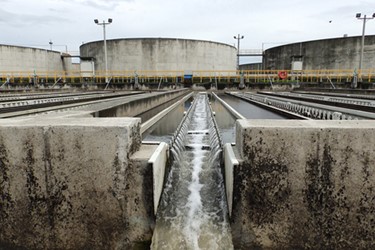Aren't Utilities And Vendors Wanting The Same Thing?
By Bill King

I was recently at a conference that featured a series of panels containing senior managers from large water and wastewater utilities. In attendance were many representatives of manufacturers and solution providers eager to have said utilities adopt their products. A number of the panelists were asked what they look for in a vendor.
The universal answer was a partner. They were interested in collaborating with companies willing to engage in solving a problem. They lamented the number of appointments they take with vendors who are far more interested in selling them on their latest technology or gadgetry than solving problems.
It got me thinking about how vendors might respond if asked what they wish for in a utility. I doubt many would say a large, cash-rich customer interested in buying as much new product as I can ship to them (at least not openly). Grounded in the reality of municipal water and wastewater, most vendors I know would want exactly what the utility is asking for. A partner. An entity willing to openly share what they are struggling with so that the vendor has a better chance of understanding if they have a solution that could help.
Isn’t it a lack of trust that prevents the open dialog?
The utility is afraid of opening themselves up for fear they will be sold. The vendor is afraid of offering too much help up front for free for fear of never getting paid for it. One of the moderators at the conference joked that we have more pilots in the water and wastewater industry than in the world of aviation. Don’t pilots again indicate a lack of trust between utility and vendor?
With constrained budgets, pilots offer a way to test out a solution for free before investing in it. It places a huge burden on vendors, a burden that only results in payment once the pilot proves to be successful. Vendors are unlikely to take on a pilot if they don’t have confidence that their solution will work. Therefore, the due diligence is being attempted ahead of the pilot to ensure success. Why not simply do the due diligence and install the solution? It can only be a lack of trust.
So how do you build trust? Where does trust come from? To me, trust is based on two things. Familiarity and Belief. In order to trust, the utility and vendor need to first be familiar with each other, the role traditionally outsourced by the vendor to a local rep network and more recently, to publishing content on the Web as utilities look for information independently. And then once familiar, vendors and utilities can begin the process of learning to believe in each other.
So, as you create content for utilities to find you online, make sure it’s content to help the utility start becoming familiar with you, based on what they are looking for. Content that suggests you might be a vendor they’d be interested in collaborating with.
Image credit: "PTAS MANAGUA," Zenia Nuñez © 2017, used under an Attribution 2.0 Generic license: https://creativecommons.org/licenses/by-nc-nd/2.0/
